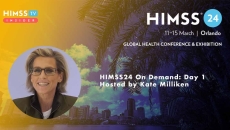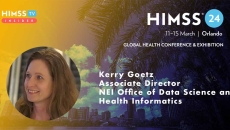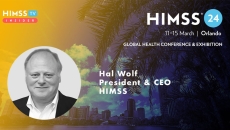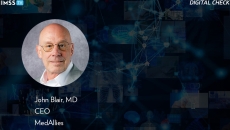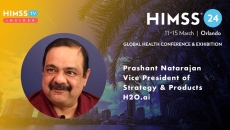Videos
Inovalon acquired VigiLanz to bring real-time surveillance software that can help prevent adverse hospital events. Inovalon's Julie Lambert, president and provider GM, and Hayley Burgess, SVP for provider surveillance and safety, offer a deep dive.
AI policies, patient experience, the next generation of CIOs, nursing informatics and more: Healthcare IT insiders and thought leaders discuss issues affecting the industry.
AI could identify early signs of heart disease and even Alzheimer’s in ocular images. But Kerry Goetz, associate director, NEI Office of Data Science and Health Informatics, says a lack of interoperability keeps this image data out of EHRs.
Whende Carroll, clinical informatics advisor, HIMSS, offers a preview of upcoming HIMSS24 sessions on ethics and AI in nursing, and discusses how AI and virtual care technology can empower patients and mitigate the effects of nursing shortages.
Amid healthcare staffing struggles, Dr. Yaa Kumah-Crystal, assistant professor of biomedical informatics and pediatric endocrinology at Vanderbilt University Medical Center, says AI-generated documentation can give clinicians more time with patients.
HIMSS president and CEO Hal Wolf discusses healthcare trends, including patient engagement, AI advancements and cybersecurity challenges, and how HIMSS24 offers attendees a chance to learn from each other and collaborate in responding to those trends.
A deep dive on qualified health information networks from Dr. John Blair, CEO of MedAllies, a designated QHIN, who also discusses how he is working with two major EHR vendors and numerous smaller ambulatory practices on interoperability.
Corti, a Copenhagen-based AI startup, helps automate and analyze virtual and face-to-face patient engagements, says Lars Maaløe, its cofounder and chief technology officer.
Prashant Natarajan, vice president of strategy and products at H2O.ai, is looking forward to talking to other HIMSS24 attendees about how healthcare organizations and HIMSS can work together to make AI tools more accessible to patients.
Radar offers new opportunities to track patients in the home without using wearables, says Sumit Nagpal, CEO of Cherish Health – who recalls some sage advice he received from Steve Jobs when pitching the idea years ago.

